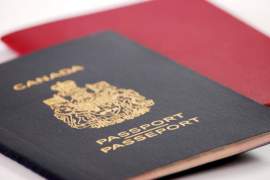
Can You Marry Someone Just For A Green Card?

The precepts behind American immigration law![]() cover some significant aspects of the human condition. One of these all-important happenings considered to be a milestone event is the institution of marriage
cover some significant aspects of the human condition. One of these all-important happenings considered to be a milestone event is the institution of marriage![]() . While marriage customs may be slightly to wildly different relative to where the ceremony is held, there are provisions within the guidelines of the United States that allow for full recognition as a result of immigration. Marriage laws in the United States are fundamentally tied to the trappings of American immigration law when they come to a spousal or fiancé(e) relationship.
. While marriage customs may be slightly to wildly different relative to where the ceremony is held, there are provisions within the guidelines of the United States that allow for full recognition as a result of immigration. Marriage laws in the United States are fundamentally tied to the trappings of American immigration law when they come to a spousal or fiancé(e) relationship.
In order for the blissfully wedded couple to live a happy life together as U.S. residents, they both need to submit to American standards upon immigration; marriage laws surrounding parties of mixed nationality have only gotten more stringent with time. In popular media, a person's acquisition of a green card![]() is often portrayed as a consequence of marriage to an American citizen. Despite the derisive applications of the green card, the U.S. government is quite serious about individuals to whom it is issues permanent residency
is often portrayed as a consequence of marriage to an American citizen. Despite the derisive applications of the green card, the U.S. government is quite serious about individuals to whom it is issues permanent residency![]() .
.
Before an alien becomes a true American, immigration law must run its due course. One thing that consular officials who review a person's file consider is the viability of the marriage. Knowing full well that people will form a partnership in the guise of marriage for the express purpose of trying to obtain a green card, American immigration law officials will look for evidence of a bona fide marital relationship.
Usually, the presence of witnesses at a wedding ceremony or some tangible proof of cohabitation such as jointly filed paperwork will help the cause of the applicants. It is preferable if there is strong evidence this was a long-term relationship prior to the process of immigration.
It is also a bit presumptuous of anyone expecting that a true marriage will automatically garner permanent residency upon completion of immigration. Marriage laws dictate that, as a condition of American immigration law, before the applicant can claim a green card for their personal identification, they must undergo a period of conditional residence and have indicated an intent to do so on their marriage visa![]() application.
application.
Following the two years of conditional residence, the applicant must re-apply for the purpose of extending the length of their residency and must go on another interview with an officer on behalf of U.S. immigration; marriage laws, once more, dictate that there must be continued evidence of a marital relationship. Once more, tangible proof of lawful cohabitation, such as signed affidavits from family, friends and other associates, must be offered.



















